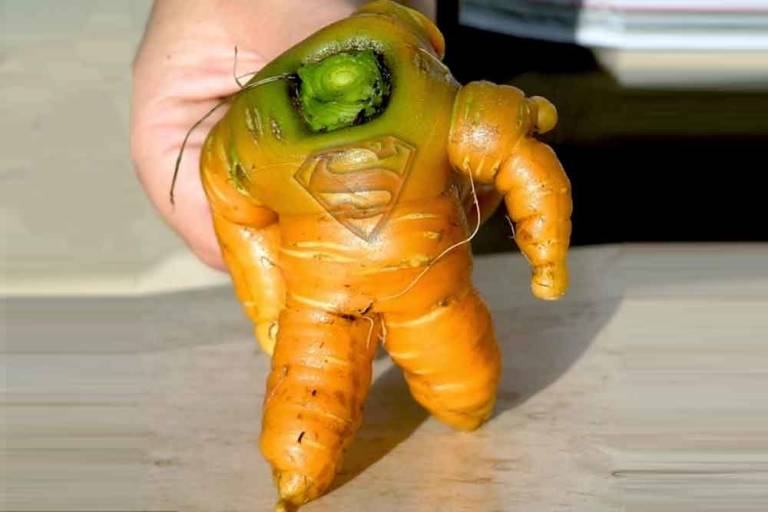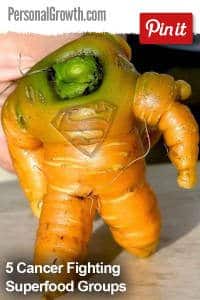

At the pivotal moment when you first receive a cancer diagnosis, the news will swiftly be followed by your doctor sharing a proposed plan of action and explaining the major treatment options available in your particular case.
You may also enlist the help of your support network at this point, asking family and friends for their thoughts and discussing what you’ll need both at home and at work if you’re going to maximize your chances of survival.
However, as important as it is to follow the advice of your medical team, you also need to make time to consider this crucial question:
Sure, you could give up your autonomy and let your doctors direct your life until you recover from your cancer, but you can improve your quality of life by actively working towards getting better.
Going through the cancer treatment process can be exhausting—it not only saps your physical energy, but it can also drain you of your mental and physical energy. The turmoil caused by the disease extends far beyond the body, and it’s all too easy to become so overwhelmed that you begin to feel utterly helpless and lost in anxiety. Taking some kind of control is vital to your emotional well-being.
Your diet is one part of your life that you definitely can and should control. Not only does doing so give you a sense of direction and self-sufficiency, but it may also play a key role in how your body responds to your cancer treatment.
Let’s take a closer look at how you can use cancer-fighting foods to your advantage.
How Does Food Help Fight Cancer
When you have cancer, there’s a war going on inside you. You need nutritional support if you’re going to stay strong enough to win this fight, and there is even some evidence that certain dietary approaches may boost the effectiveness of common cancer treatments.
You may have heard some doctors scoff at the idea of using superfoods to help with cancer treatment and recovery. However, cancer-fighting foods are packed with powerful antioxidants.
It’s their job to fight dangerous free radicals that build up inside your body, slowing—and sometimes even stopping—their ability to damage your cells. Given that cancer is a direct consequence of cell damage or mutations, it should be obvious why antioxidants are important.
Some oncologists are concerned that ingesting healthy, whole foods might undermine the effectiveness of anti-cancer drugs—the suggestion is that antioxidants could neutralize chemotherapy agents or radiation treatments.
This disagreement about cancer-fighting foods is a paradigm example of the divide between those who want to use an exclusively traditional approach and those who are interested in complimenting traditional approaches with methods that can enhance the body’s ability to heal itself. There are very good reasons to suppose that the second approach is the better one.
Firstly, cancer patients are often prescribed drugs with antioxidant properties (such as amifostine and dexrazoxane), so why think it would be so hazardous to add antioxidant foods into the mix?
Secondly, there are studies going as far back as the 1970s that show no apparent interference caused by eating antioxidant-rich foods during the cancer treatment process. The research actually shows the exact opposite—that cancer-fighting foods have the potential to boost anti-cancer drug efficacy in a way that leads to better outcomes for patients.
The American Cancer Society also acknowledges that further studies have revealed that patients who continue to eat healthily after their treatment is over tend to have higher survival rates.
Naturally, sticking to a healthy diet is beneficial for everyone, but it’s importance for cancer patients cannot be overstated. If your body is going to have the resilience to tolerate not only the impact of the disease itself but also the side-effects of chemotherapy, radiation or surgical treatment, you need good foods on your side.
Careful eating can help to protect your immune system and other healthy parts of your body, and it may even boost the antibodies that reduce future cancer resurgence. As a bonus, you’ll know that you’re being proactive in helping your body, and you’ll be able to experiment with dozens of creative and tasty recipes that give you that much-needed “something extra” during your treatment.
The Top Five Cancer-Fighting Foods
While it’s great to know that your diet has the potential to influence how you respond to cancer treatment, you might be wondering whether to start when it comes to making nutritional changes. There are five particularly important cancer-fighting foods to focus on.
1. Fatty Fish
As you may already know, fatty fish (e.g. tuna, sardines, wild salmon and mackerel) provides you with healthy fats called omega-3 fatty acids. Omega-3s have powerful anti-inflammatory properties that may help to protect your body from certain damaging hormones that are produced during treatments like chemotherapy and radiotherapy.
These negative hormones cause widespread inflammation and irritation, which is why consumption of anti- inflammatory foods becomes so important. In addition, fatty fish is a great source of vitamins D and A, which can also help your body fight cancer.
2. Yellow And Red Peppers
Yellow and red peppers are bursting with vitamin C, which has a reputation for boosting immune system function and improving resistance to disease. Further, vitamin C is a potent antioxidant, which means it plays a role in neutralizing toxins.
While you might be thinking that oranges would be a better source of vitamin C, this is a common misconception—peppers actually provide you with more.
An extra reason to consume them is that they provide you with carotenoids, which your body converts to vitamin A. Some other fantastic sources of carotenoids include sweet potatoes, carrots, and dried apricots.
3. Purple Foods
Yellow and red aren’t the only colors that signify cancer-fighting foods—purple foods don’t get a lot of attention, but they’re incredibly useful. Think of purple grapes, beets, cherries, blueberries and eggplant, as these are all packed with water-soluble pigments called anthocyanins.
There is now a huge amount of evidence that anthocyanins are capable of killing cancer cells. And that’s not all—they can also boost your immune system and support healthy organ function, which is helpful not just for cancer sufferers but also those with poor habits or a limited diet. You can benefit from anthocyanin consumption very quickly, as your body absorbs them easily.
4. Mushrooms
Mushrooms are a big part of traditional Chinese medicine—they’re said to balance the immune system and purify the blood. Shiitake, Portobello and Miatake mushrooms are all excellent examples of medicinal foods, as they’ve been proven to reduce some of the difficult side effects associated with cancer treatment (such as nausea, vomiting and hair loss).
These mushrooms are linked to improve immune system function and higher cancer survival rates. In fact, some studies estimate that these cancer-fighting foods can reduce the size of certain malignant tumors by up to 70%.
5. Nuts And Seeds
Sunflower seeds and pumpkin seeds contain huge amounts of both zinc and vitamin E. Zinc helps your body absorb even more vitamin C (from foods like red and yellow peppers), and vitamin E galvanizes the immune system.
Meanwhile, nuts are a source of selenium, which has anti-cancer properties as well. Some particularly good choices include almonds, walnuts and Brazil nuts.
Extra Advice On Cancer-Fighting Foods
If you make sure you have a high intake of the five foods mentioned above, you’ll be well on your way to establishing a cancer-fighting diet. However, there are also some other thoughts to keep in mind. Try to do the following:
While it can sound tough to stick to a healthy diet, you may be surprised by how soon you experience a difference in well-being—this will help you stick to your new regimen. In addition, consider asking a friend or family member who likes to cook if they’ll help you make meals ahead of when they’re needed, so you can stock them in your freezer and they can be quickly prepared when you don’t have the energy to cook for yourself.
Discovering The Truth About Cancer
Everyone dreads getting a cancer diagnosis, and those who have been through the harrowing process of treatment never want to repeat the experience—it’s tough on the mind, body, and bank account.
However, did you know that dozens of different countries are working on pioneering new treatments that could be powerful allies in the fight against cancer? While we don’t hear about these as often in the United States, they’re generating hope and excitement all over the world.
For example, you might be shocked to learn the following facts:

The sad fact is that cancer is a big business, and people profit from the fact over 50% of cases of cancer are said to preventable.
If you want to learn more about just how cancer is being treated in 26 countries outside the US, watch *“The Truth About Cancer: A Global Quest.”
This is a documentary that is free to watch and will revolutionize your perspective on both what causes cancer and how it can be prevented.

